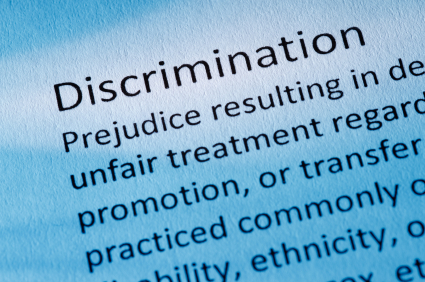Prejudice Vs. Discrimination – Is There a Difference?
A manager might be prejudiced, but if this individual does not discriminate, legally it does not make any difference. We don’t care what people think, we care what they do! Know the difference between these two unfortunate situations and know what might be actionable if it affects you. When it comes to prejudice, thicken your skin and when it comes to discrimination know the rules. Above all…always be the professional!
_________________________________
If you have read Black Sales Journal before, you recognize that I frequently comment on racial prejudice, racial preference, and the effects of negative racial perceptions. It is natural to provide comment on these topics as they represent the 8,000-pound elephant in the room and as a result are not discussed openly in most forums.
We spend time discussing how the Black sales professional can successfully use tactics to neutralize racial preference and how we all (all Black professionals) can nullify and improve negative racial perceptions. We also face the fact that racial prejudice is a different and difficult beast and that we may never change it. Psychiatrists often characterize prejudice as a deep-seated attitude. We all are aware that something negative has been cast into someone’s personal life, it can have a permanent effect.
Importantly, we should recognize the relationship between racial prejudice and racial discrimination and how they manifest themselves in sales.
The Attitude versus the Action!
For the purpose of this explanation let’s define both of these:
Prejudice – Unreasonable feelings, opinions, or attitudes, especially of a hostile nature, regarding a racial, religious, or national group.
Discrimination – Treatment or consideration of, or making a distinction in favor of or against, a person or thing based on the group, class, or category to which that person or thing belongs rather than on individual merit: racial and religious intolerance and discrimination.
(Courtesy of Dictionary.com definitions 3/5/2012)
So there you have it, racial prejudice is an attitude. It can reach deep into ones fiber, but an individual will never be tried in a court based on this attitude, as it is not a crime. If a customer has this attitude, they still remain a viable customer for someone, but possibly not for a Black sales professional. If your employer has this attitude it is unfortunate yet as long as they make objective and meritorious decisions, they are not guilty. In other words they can be prejudice but not discriminate strange as it may sound.
Racial discrimination is a different animal as it is action oriented. A distinction made on the basis of race can potentially be afoul of the laws and regulations, and is almost always ethnically wrong. It goes without saying that racial discrimination is unfair and although a customer is free to do anything they want, in the case of an employer it could be legally actionable.
The Vicious Circle
The relationship between prejudice and racial discrimination is suggested to be ‘circular’; meaning one leads to the other. You document racial discrimination but you talk about prejudice as someones disposition or attitude. Racial discrimination might mean that you get no ‘call-in’ prospects, bad territories, or no house (orphaned by another rep leaving) accounts. Discrimination may be hard to prove, yet there is evidence, especially when you are able to compare the situation on a relative basis between all sales professionals at a location. Know what extras you get and how well you performed when you get the chances and if you feel aggrieved read Black Sales Journal 3/9/2011 When You Feel Screwed – Three Steps to Getting Help.
I make the suggestion that from the standpoint of professional sales that we realize that the most important activities that we can undertake are as follows:
- Look for and expect fairness from the managers that we work for and be prepared to professionally point out inequities, in a professional manner, as they happen.
- Document important milestones and activities correctly recognizing that it is “not what you know, it’s what you can prove!”
- Master your company’s performance system (Black Sales Journal 1/10/2011 – Preparing for the Performance Review Discussion). Always be pro-active and prepared.
- Document every thing you get and what you don’t get. Know the prospects, house accounts, and special benefits you get, and document them well. Especially document the situation if you are not getting any. You will need to know what others are getting to have a chance of success. The facts count.
- Be the expert on you! Know your sales totals, close ratios, and what percentage of your success came from the company giving you prospects or accounts.
When Bad Gets Worse – Racial Harassment
The unfairness of racial discrimination creates frustration and ill will. Things are even worse when there is racial harassment. Racial harassment normally comes from the employer and can emanate from management or coworkers. A strong example of this is the Montrelle Reese vs. ThyssenKrupp (see Black Sales Journal February 13, 2012).
Racial harassment has a primary purpose of demeaning and driving an individual out of the particular work environment. It is akin to racial bullying and has no place anywhere, especially in the work environment. Making someone miserable is awful, and anyone who witnesses it and does nothing is full of fault as well. It makes no difference as to the colors involved.
Know the facts and know your options. Most importantly, recognize that acts of discrimination, harassment, and bullying may be actionable, but prejudice is not. It is an attitude.
Additionally, always be the professional.
Your comments are welcome. Your comments are welcome. Reach me at Michael.Parker@BlackSalesJournal.com.
 December 14, 2015
|
Posted by Admin9!
December 14, 2015
|
Posted by Admin9!

 Categories:
Categories:  Tags:
Tags: 

Your Comments